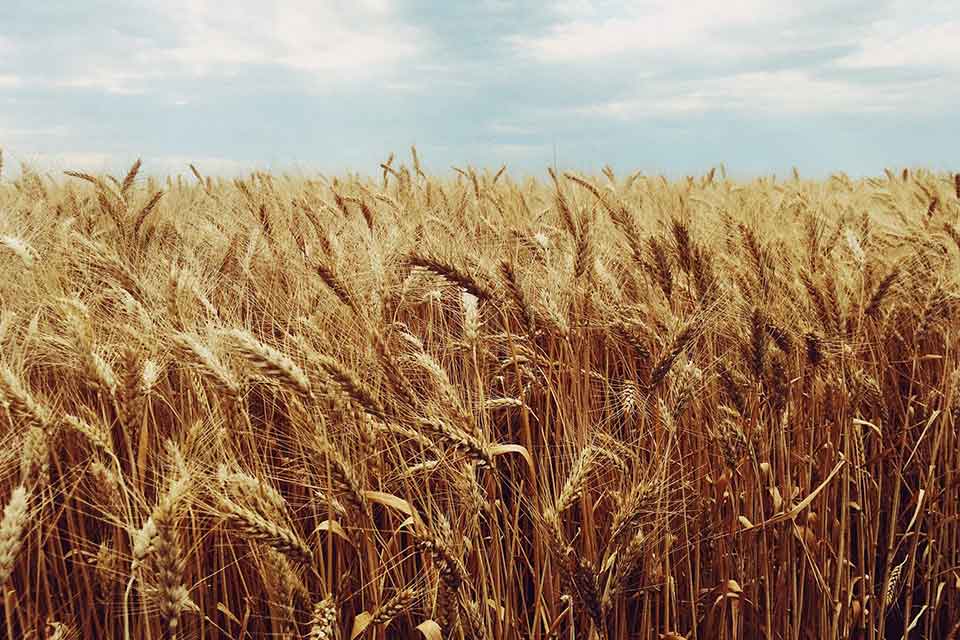Letters from Exile

Series editor’s note: In this week’s poem, the speaker finds himself to be on the outside, looking in with an ever-watchful gaze, pondering all the water in the sky, as if he himself has been through fire and back, and somehow was made more alive than ever. But the implication here is not endurance out of the suffering body, nor does its contemplative state rest on some sort of resolution that’ll make it easier for the reader to understand what the speaker is going through. Rather, the poem follows a trajectory of its own, one in which trees stand tall like the eyelashes in God’s eyes, and where all the beauty in the world must be taken in slowly, skillfully, as the beauty of the world / was built in our blood. There is no home here, no tidy way of resolving the constant state of exile, where even love’s own welcome is met with a wall. But even in his limited seeing, the speaker does something wondrous: he shows us the particular beauty of a Black boy, an image that will stay with us long after we’ve left the poem. – Mahtem Shiferraw
Letters from Exile
Tallahassee
i
From the window sunlight pierces the bodies
of clouds. I turn to watch them, all that water
in the sky, trapped in the shape of dolphins,
a family swimming through the St. Johns River.
The beauty of a place is welded into us
like that parapet in Cambridge that I still see
in the afternoon of the world, its clay roasted
in fire; the patience of skill, the patience of movement,
something I know about, having been in the sky
for hours. The airplane turns toward Tallahassee
and the marshes present themselves, green
and beautiful, like children on Christmas day.
The trees, too far from me to know their names,
stand so slender, eyelashes in God’s eyes,
so tender it waves in the winds of beauty
and on water a tiny boat moves toward home,
leaving in its path, lightning, a trail of light
on the belly of the world. O stars not yet out,
how I quake in the wake of wonder, all that beauty
so heavy I must take it in slowly or get drunk.
I, too, having walked the antebellum of the South
must come to the same conclusion as the woman
on my right came to, the beauty of the world
was built in our blood. The plane taxies and I wonder,
in all the places I have been to why does love greet me
at the door with an effort sculpted by brutal labor?
Will I meet it today? When it says to me, welcome,
will I look in its eyes and say, there is a wall
we all must rest on, I hope you find yours?
And now I walk down the aisle, my hands before me,
a bride, an exile seeking home, and the world reaches out
to me, not in the welcome of a prodigal but in the way
eternity swallows us, knowing fully well that we will drink
and not reach the end, still it gives what it can, mourning
into our deaths the summer sound of cicadas.
ii
Of this I am sure, a field of wheat was created
after hosannas of angels, all that swaying, rising
and falling, holy emotions tucked in their stems.
I am standing before a little patch of earth,
Spanish moss draping from oaks as if something
will always be covered before me.
And a little Black boy riding his bicycle
to an ice cream truck is the new explorer
of taste, his tongue hungry for an oasis
in the hot sun of summer.
I have come across red brick buildings
of the university, the slow turn of the streets
designed by some city planner to slow down
those who hurry through life.
The crows here are slow and easy, caw-cawing.
Having delivered their messages, they, too,
must rest, saying to themselves, the gods
must be asleep in this heat. And in faraway fields
cows graze the land, counting the shifting earth
with their mouths.
Of all the mysteries of the earth, rest is what I seek
and here, the boombox is out in a park,
bordered by a lake filled with ducks.
Some men in wife-beaters gather around a grill,
nodding their heads to the slow process
of grilled pork, and on the bench women chop
okra – the passing of knowledge from land
to sea – passing among themselves a bottle of rum.
I say to myself, I will never forget this place,
all these trees, old and wounded, battle-hardened people,
and as I turn toward the highway where a record store
sits on the corner, an ambulance, so black, passes me.
The sadness of a peaceful death is that it is too beautiful,
too heavy for us to understand. Across my window,
after the lingerie store, lies flat land after flat land,
all filled with the flora of Florida, so beautiful I find myself
saying, if I die tonight let my body swell into a hill,
let a cow wander up my limbs, lying before the windmill
of my mouth, and if it moos let there be a frangipanni
to answer it, swaying before the far sea, leading me home.
Editorial note: Black Voices is a special series guest-edited by Mahtem Shiferraw and sponsored by the WLT Puterbaugh Endowment, which makes possible the Puterbaugh Lit Fest. The series will run on a weekly basis through October 2021.












